24 Sustainable Actions to Try in 2024
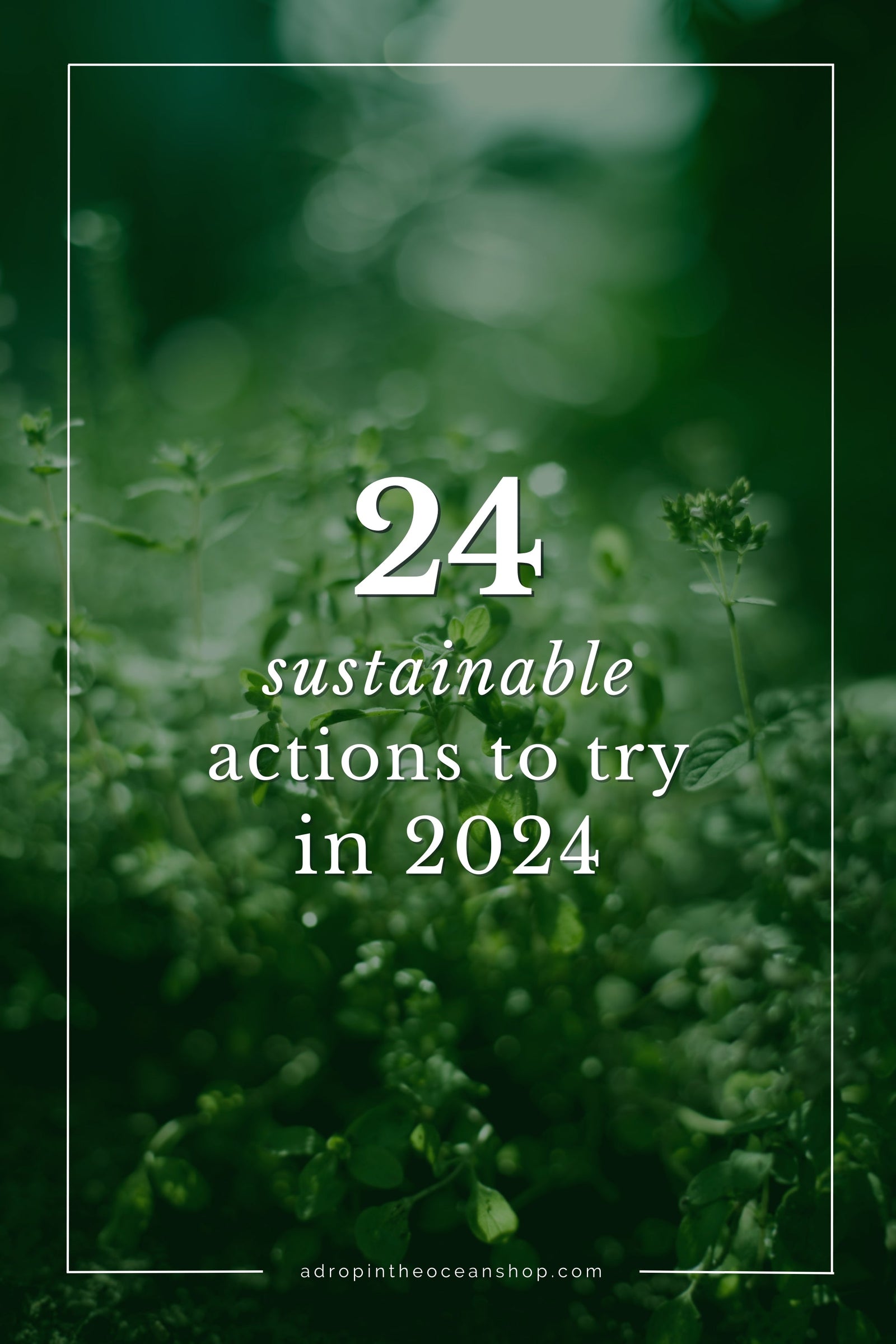
This post first appeared in our weekly Make Waves Mondays email series on January 15, 2024.
It’s been a while, friend!
I’m so excited to be back with a whole ‘nother year of Make Waves Mondays!
I’ve got a lot of ideas in the queue for this year, and I’m super grateful for all of the ideas this community shared in our year-end survey to add to that queue. It’s gonna be a seriously great year for A Drop in the Ocean and Make Waves Mondays and I’m so stoked you’ll be here for it all 😊
But for right now, I just want to kick things off with something super simple… 24 sustainable actions to try in 2024.
Every action on this list is intended to perhaps push you a little outside your comfort zone, but still be totally actionable and do-able in most of our lives.
Maybe you’re already doing some of these. Great!
Maybe you’re not. That’s okay too!
I would really encourage you to pick one or two things from this list that you want to start implementing right away, and just give it a shot! See what happens. 🤷♀️ In a month or so when you’ve mastered those things, pick another one or two, and keep it going through the year.
This list is in absolutely no particular order, so pick the ones that make the most sense for you, and then do me a favor and comment below to let me know which one(s) you’re gonna focus on for the next few weeks. Mkay? I really do want to know!
Now. Let’s dive into it 👇
1. Conduct a waste audit
Okay so I know I literally just said that this list isn’t in any particular order, but this is the one exception. I would 1000% recommend starting with a waste audit.
Whether you’ve already done one in the past or not, a regular waste audit is such a fantastic tool to help you figure out where your efforts in reducing your waste would make the most impact.
If you only use a straw once a month but go through four rolls of paper towels in the same amount of time, buying a reusable straw might not be the most important action for you at this exact moment.
Lucky for you, we’ve got a handy dandy waste audit template for you on the blog, so if you don’t already have that in your toolkit, definitely go grab it now (it’s free!).
2. Lessen your paper towel use
Did you know the average person uses about 3 rolls of paper towels every month??
Those rolls of paper towels add up to an average of an extra $102 spent each year, and an extra 90 gallons of water and 30% of a whole, fully-grown tree used to produce those towels.
And as a reminder, we’re talking per person here, not per household.
If your automatic response to any sort of mess is to grab a paper towel, give some reusable unpaper towels and Swedish dishcloths a shot! You’ll save heaps of cash and resources in the process.
It might take a little bit of intentionality at first, but after a while, I pinky promise it’ll just become a habit and you’ll never even think about it again.
3. Switch to a natural + refillable laundry detergent
Last year, New York implemented a law banning several well-known laundry detergents because they contained 1,4-Dioxane - a synthetic chemical that’s been shown to increase risks of liver and gallbladder cancers.
So many of the laundry detergents on the market today are loaded up with chemicals that aren’t great for us or the planet, and are packaged in big, bulky plastic jugs made from petroleum.
For something we all use on an incredibly regular basis, this just seems so backwards to me.
Instead, when you run out of your Target-run detergent, make the switch to a people- and planet-safe laundry detergent.
Your clothes, your skin, and the planet will thank you.
4. Start composting
Composting is kinda the MVP of sustainable living, but it’s not always accessible for everyone.
Literally every day I’m SO grateful to live in a city that provides curbside composting services, having lived in a city that didn’t offer this service and in an apartment that didn’t have access to a backyard for home composting.
There are several types of composting, and I’m hoping to do a blog post this year on the different types, but if you have access to composting - in any form - where you live, definitely take advantage of it!

5. Hang-dry your laundry
We’ve got a whole blog post on this one, so I won’t bore you with all the numbers, but hang-drying your laundry instead of tumble drying will save you about $274 and eliminate as many emissions as not driving 1,560 miles…all in just one year.
So, ya know, you can’t really go wrong with this one.
Bonus: clean your lint trap so that when you do use your dryer, it's more efficient!
6. Unplug electronics when not in use
You might have heard this one before and thought to yourself, “How much of a difference could that really make??”
Well. Let’s say you charge your phone for one hour every day, and you unplug the charger from your phone when it’s fully charged, but leave the charger plugged into the wall. For those other 23 hours in the day, over the course of a year, that phone charger is going to pull as much extra energy as driving 4 miles in an average car.
Which, sure, doesn’t sound like a lot, but if we extrapolate that to all people who own smartphones in the United States, that’s like an extra 1.1 billion miles driven.
And that’s not even taking into account the things that are fully charged but left plugged in anyway…
In 2015, one study found that nearly a quarter of a household’s annual energy use comes from this so-called phantom energy.
So yeah. It kinda matters…
And if you’re a data nerd like me, you might want to read our full deep-dive into phantom energy too 😅
7. Get super clear on what’s recyclable in your city
This will always be on any round-up lists like this for me. It’s SUCH an important one, and it’s honestly an ongoing one, too.
Recycling regulations vary widely from city to city and can change over time for your city.
Google “recycling guidelines [your city]” to find your local guidelines, and bookmark the page to come back to any time you’re not sure about something’s recyclability.
8. Switch to solid dish soap bar
It’s one of those hard truths about adulting… Unless you’re April and Andy, there will always be more dishes to do.
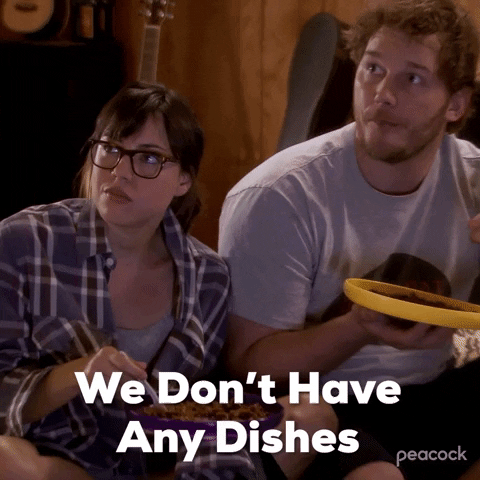
Since you gotta do dishes anyway, why not make the switch to a 100% package- and plastic-free solid dish soap bar, with ingredients you can feel better about going down your drain?
I even recently received an email from one of your fellow EcoWarriors sharing how pleased they are with the dish soap bar because it makes washing the dishes so much easier for them as someone with ADHD 🤯
It’s seriously my all-time favorite kitchen swap, and I know you’ll love it too.
9. Implement a “No New Things” month
Buy less. Repair. Borrow. Rent. Buy secondhand. Get creative with what you already have. Reuse.
We live in a disposable society, and we’re conditioned to think that we need to own ~all the things~ for ourselves, when in reality that’s simply not true.
Check out Ashlee Piper’s “No New Things” Challenge to see how you can avoid buying new things for a month (or more!).
10. Volunteer with a local cleanup effort
This is one that I really want to make a better effort to do this year!
Locally, we have a couple really great organizations that host cleanups around Tacoma regularly - South Sound Surfrider and Oscar’s Enemies.
See what organizations exist in your area and join them for a cleanup! (Or just grab a bag and walk down your street - no formal event necessary!)
11. Save your veggie scraps to make broth
This is the EASIEST freakin’ thing on the planet.
Like, seriously.
Save up your veggie scraps in a tupperware or gallon-size bag in the freezer, and when it’s full, turn them into delicious veggie broth!
Carrot peels, celery ends, bell pepper innards, asparagus cast-offs, onion and garlic skins… basically any sort of non-starchy vegetable is GREAT for this, including fresh herb stems!
How to make vegetable broth from veggie scraps:
- Keep the scraps in a gallon Ziploc bag or tupperware container in the freezer.
- When the bag or tupperware gets full, pour the veggies in a stock pot and fill with water until the veggies are just covered.
- Bring to a boil.
- Reduce heat, cover, and let simmer for ~45 minutes.
- Remove from heat, strain out the veggies, and let the broth cool.
- Compost the veggies.
- Transfer the cooled broth to mason jar. Refrigerate for use within a few days or freeze for future use.
- Wash the bag or tupperware and reuse.
12. Ditch plastic sponges
Whether it’s a green and yellow Spongey McWipey (bonus point for you if you get that reference 😉) or a hot pink shower loofah, ditch the plastic sponges in your life for a sustainable, renewable alternative.
Fun fact - the loofah plant is a relative of the cucumber! There’s no need for sponges, shower poufs, or scrub daddies when you’ve got a plant that does it all instead 🌱
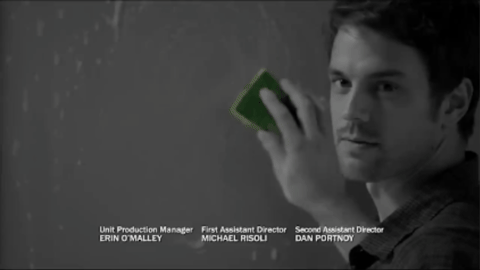
13. Write or call your representatives
This is another one that I want to focus more on this year! It looks so easy on Instagram when I’ve seen others do it, so why not give it a shot myself?
You don’t need to be an expert to make your voice heard. We need more of us EcoWarriors who care deeply about the planet and the people living on it to tell our representatives that we want to see changes happening at the top-down level, not just the bottom-up level.
14. Plant a windowsill herb garden
Once upon a time I had a flourishing indoor herb garden, and this year I’m determined to bring fresh herbs back into my life once again! Will you join me in this endeavor in a few months, too?
15. Shop the bulk sections of your grocery store
I know that not everyone has access to bulk sections in your grocery store, but if you do, take advantage of it! If you’re nervous to bring your own containers like mason jars, just start with some baggies.
I have a stash of Ziploc baggies I’ve collected over the years that, sure, doesn’t look super zero waste from the outside when I’m going through the checkout line at my local grocery store, but those baggies have gotten SO MUCH LIFE out of them and still have SO MUCH MORE to go!
In a pinch, use the bags they provide at the store, but then wash them and bring them back with you to reuse the next time you go.
And if you’re ready to try using your own mason jars and other hard-sided containers, check out my two-part video series where I broke down exactly how I do it, step-by-step.
16. Share your efforts on social media
Sometimes all it takes is just one person talking about what they’re doing to make a difference. Share some of your eco-actions on your preferred social media channel and see what happens!
17. Join or create your office’s Green Team
If your office has a Green Team, find out who’s on it and how you can get involved. This is such a great way to start making meaningful changes outside of your own life!
And if your office doesn’t already have one, talk to your HR rep and see what it would take to get one started! 💪
18. Switch to a tree-free toilet paper
Sooooo…across the planet, we consume about 27,000 trees every dang day - just from wiping our bums.
And I think that’s just ridiculous.
So instead, switch to a recycled or bamboo toilet paper. Personally, I’m a big fan of Who Gives a Crap toilet paper. I’ve been using their recycled TP for years and I think their whole brand is the bomb-dot-com.
I know they’re a bit spendier than what you’d probably pick up at Target, but their products and business model are totally worth it in my humble opinion. If you want to give ‘em a shot, feel free to use this referral link for 20% off your first order.
(Yes, I’ll also get a small discount if you place an order with that code. But I pinky promise you I’ll only ever share and promote brands that I use personally and believe in 100%.)
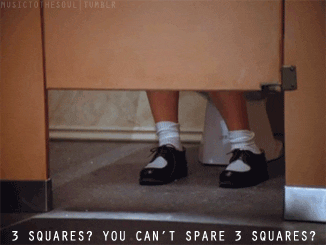
19. Divest from fossil fuels
Where you choose to bank matters, friend.
When you deposit cash in your bank account, it doesn’t just sit there waiting for you to take it out. The bank is investing your money to make a profit.
JPMorgan Chase, Citi, Wells Fargo, and Bank of America are the top 4 banks in the world contributing to fossil fuels.
According to FossilBanks.org, between 2016 and 2022, Chase has spent $434 billion financing fossil fuel projects, followed by Citi Bank at $332 billion, Wells Fargo at $316 billion, and Bank of America at $279 billion.
I’ll be doing a whole blog post on sustainable banking this year, but in short, anything we can do to move and keep our money out of these banks is a net win for the planet.
20. Switch to refillable or bar bathroom products
This is one area we can really make a huge difference in when it comes to reducing our waste! Think of all the soaps, lotions, toothbrushes, razors, and more that we throw away in a year…
It adds up.
As you use up these items in your home, replace them with a sustainable, refillable or solid bar version instead.
21. Eat more whole foods
Not only is eating more whole foods better for your body, it’s also better for the planet.
When we eat more whole foods (things like fruits, vegetables, beans, whole grains, and lentils), we use less greenhouse gases, less energy, less land, and less water than we do with animal-based foods.
Plus, most of these whole foods you can find pretty easily at your grocery store completely package-free or in bulk bins.
When I’m at the grocery store, I always try to stay along the outer edges of the store as much as possible. Ever notice that’s typically where all of the produce, bulk, and other essentials hang out? Once you go into the aisles it’s packaged and processed galore.
Focusing on meals and recipes with whole foods as the base reduce our impact on the environment, inherently create less waste, and save money.
It’s a win-win-win.
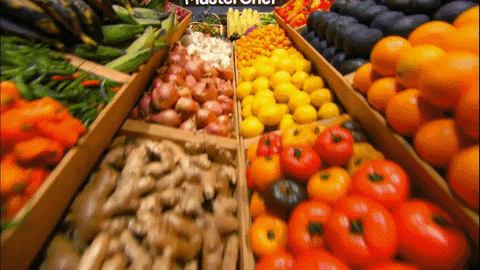
22. Wash your laundry on cold
90% of the energy used to wash your clothes comes from heating the water. Cold water is just as effective as warm or hot water, and saves a boat-load of energy. Even if you start with just one load a week on cold instead of warm, that makes a difference!
23. Break up with Amazon
This is another one I’m not going to get into a ton of detail on, since we’ve got a deep dive on the blog allllll about how to break up with Amazon and Amazon Prime.
But basically, make 2024 the year you finally give Bezos the boot 🥾
24. Unsubscribe from unwanted emails
It’s insane to think about, but the average person’s emails over one year produce about 135kg of carbon dioxide emissions.
And when we look just at spam emails, a whopping 80% of the energy from these emails comes from opening, reading, deleting, and searching through spam folders.
So if you’re on a bunch of email lists that you never engage with, next time you get an email from them, instead of just pressing that delete button, open the email, scroll to the bottom, and click the Unsubscribe button.
Sure, you’ll save emissions, but you’ll also save SO MUCH TIME by never having to deal with deleting those emails again.
So friend, like I said at the beginning of this post… Will you do me a favor and comment below and let me know which of these 24 sustainable actions you’re going to try first this year?? Or if you’ve got something else at the top of your list, let me know that too!
I can’t wait to hear from you 💙
Related:
10 Tips for an Eco-Friendly Laundry Routine
10 Ways to Reduce Your Waste Without Spending a Dime
60+ Things I Do in a Day to Live More Sustainably
Beginner's Guide to Going Green: 10 Ways to Live More Sustainably Every Day
Small Change, Big Impact blog posts






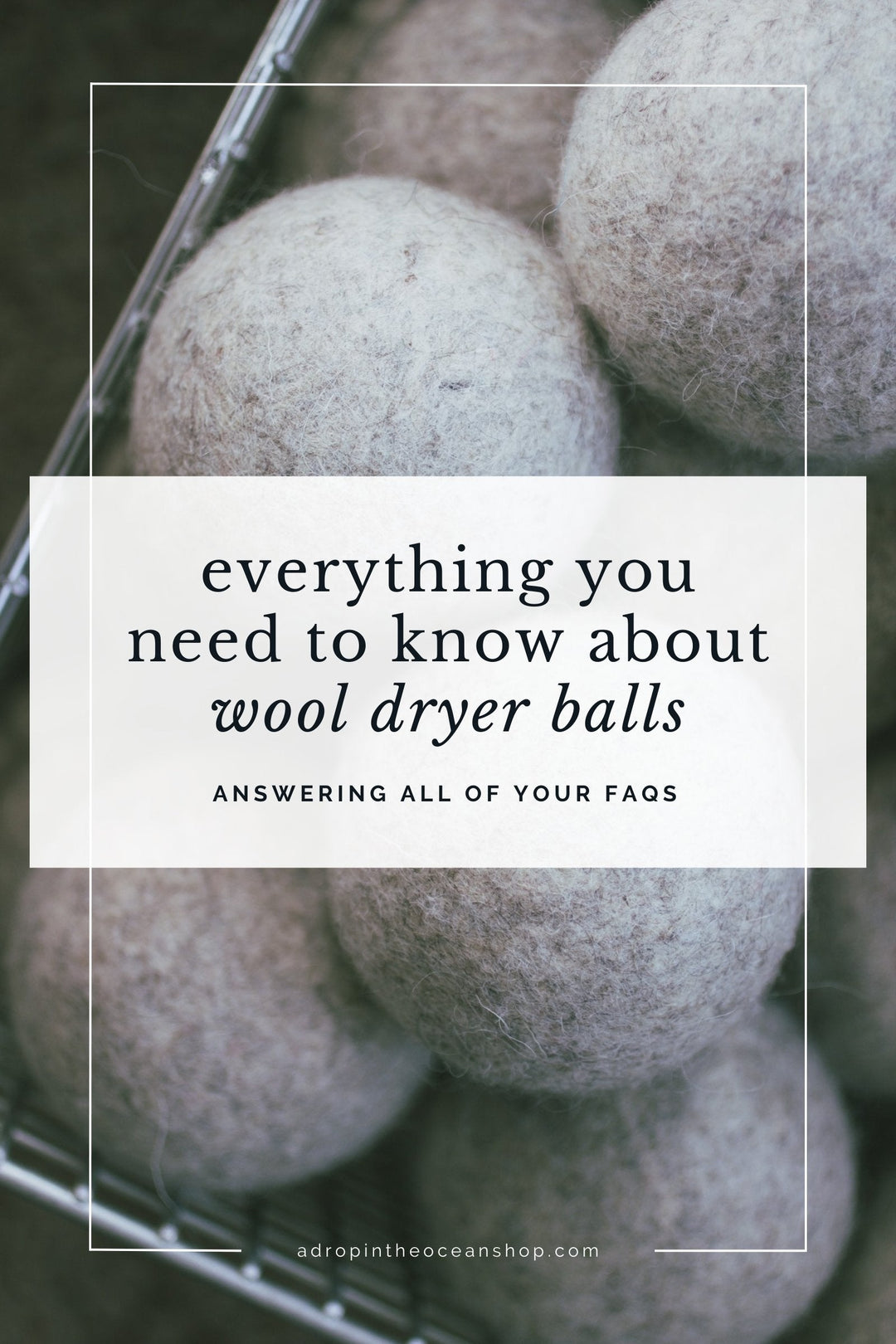
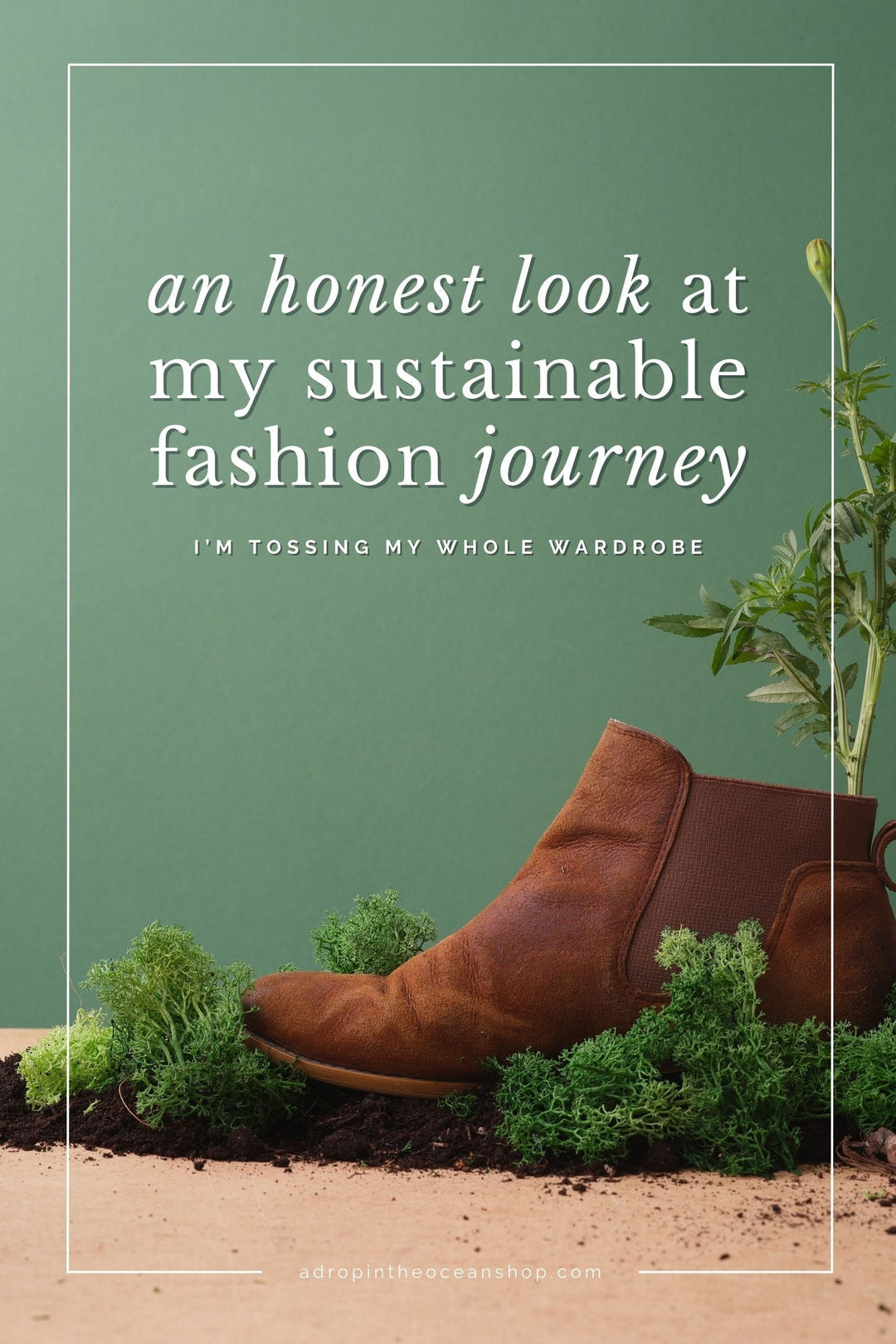
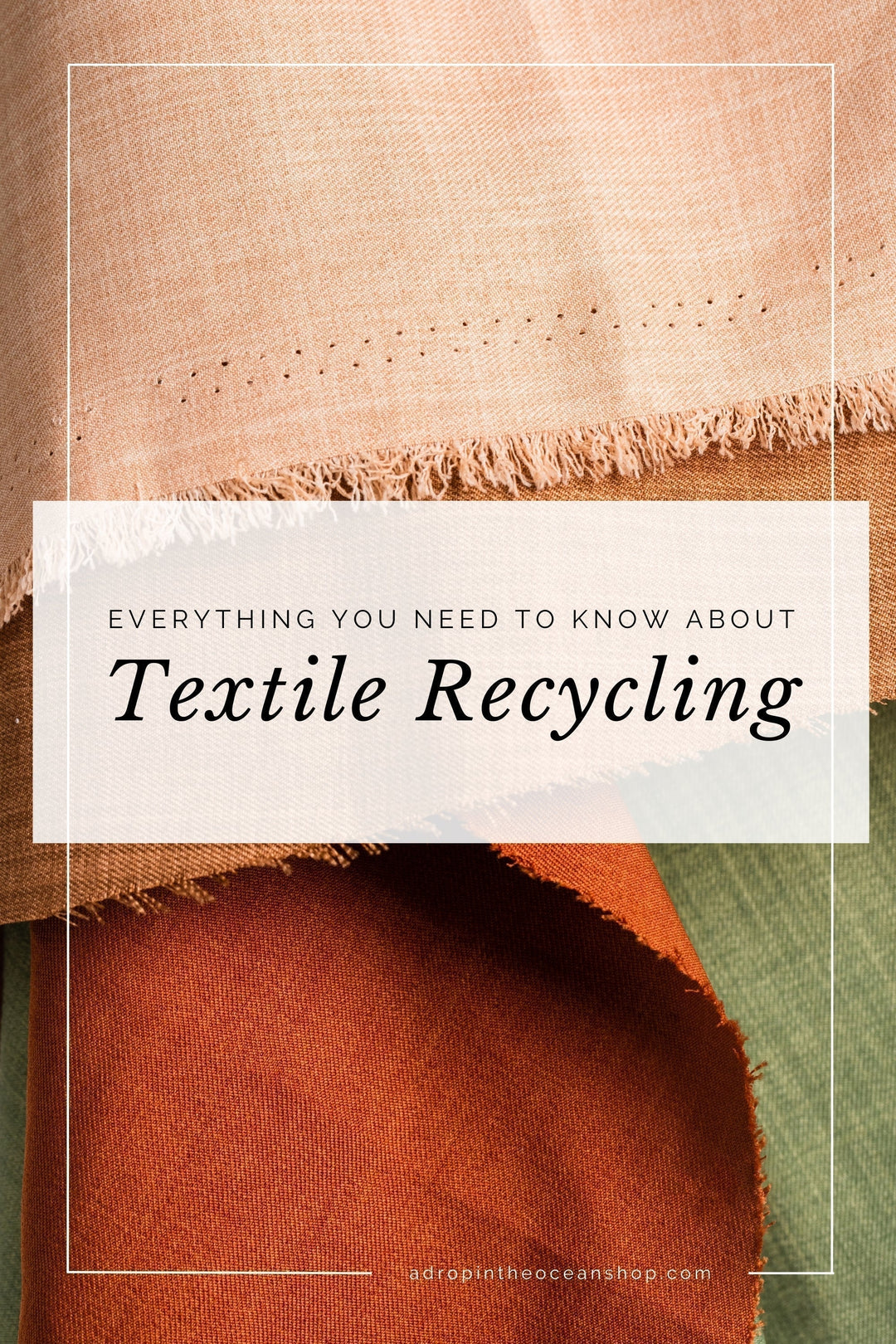
Hey there! Someone directed me to your blog via Reddit. I’ve been a zero waste nut for about 5 years or more, this is a great resource.
You mentioned you were ‘coming for Blueland?’ I’ve been a beta tester for them. Their packaging is all compostable and not that I think their entire catalog is stellar – their hand soap and laundry detergent does it for me! But I’m always down to know what the ‘dirt’ is, so to speak.
Also, on the textile recycling: I don’t trust those ‘give us your money we’ll recycle your clothes’ places at all. So I did some serious googling around where I live. Here in Nashville there are textile recycling drop-offs as there is an actual textile recycling plant. It’s a whole tit-for-tat set up with non-profits and finding them was a BIIIIIITCH, but I did!!
That may be something to look into in your city and other spots around the US.
I signed up for the blog. Thanks!
Leave a comment